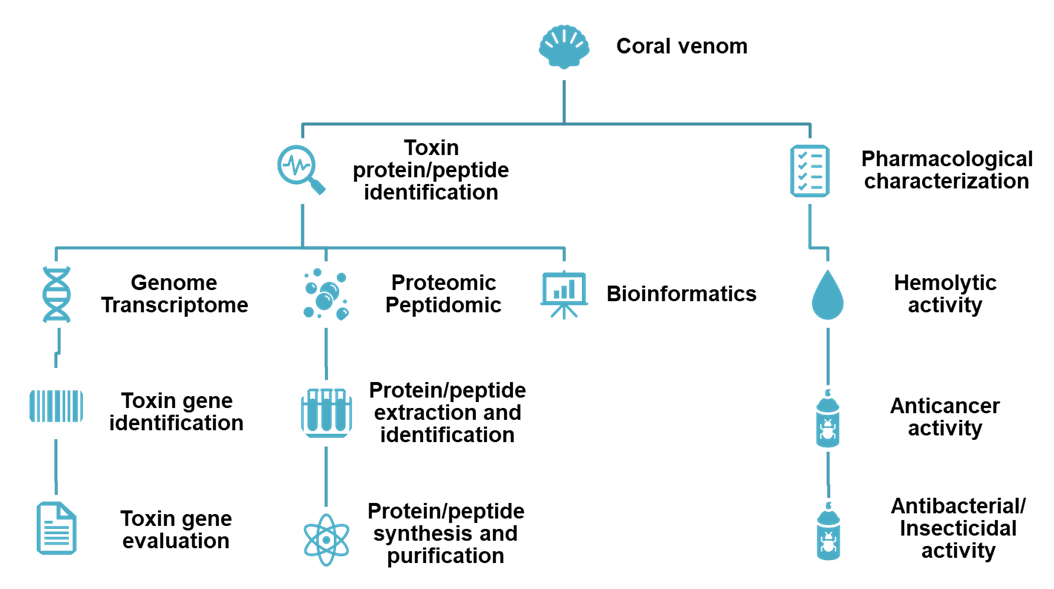Coral Venom Solutions
Cnidarians are ancient poisonous creatures, including jellyfish, sea anemones, corals, etc. The venoms of jellyfish and sea anemones have been studied more and show a wide range of biological activities, including cytotoxicity, antibacterial and anti-tumor effects. Although their venoms vary greatly in effectiveness, coral venoms also possess a series of biologically active compounds. Creative Proteomics provides coral venom solutions to discover the toxins present in corals and explore the diversity and biological activity of coral venoms.
Introduction
At present, the most well-characterized corals are cysteine-rich peptides (SCRiP) from stony corals, which have neurotoxic effects, but this is not the only toxin present in corals. Considering the highly microbial environment in corals, perhaps there are other antibacterial molecules or non-protein toxins also present in corals. Coral venom is the source of potential new biologically active molecules, which is of great significance for the further characterization of new toxins. We solve the complex extraction process of coral toxins, provide genome, transcriptome, and proteomic analysis to better understand coral active toxins, and identify new toxin protein/peptide categories.
Our Coral Venom Solutions
- We solve the sampling problem of coral venom. Corals release venom through a unique venom delivery system-stinging cells, which complicates the extraction process of toxins. All our work is carried out under proper permission, solve the sample problem for customers mainly by dissecting the tentacle tissue to isolate the complete barbed wire sac and identifying the nematode sac.
- We analyze the physiological activity of coral venom. Evaluate the pharmacological effects of venom, characterize hemolytic activity, phospholipase A2, cytotoxicity, insect resistance and antibacterial and other indicators.
- We identify and characterize coral venom proteins/peptides. Use NMR sequencing and tandem MS to determine the protein/peptide sequence, NMR spectroscopy to determine the three-dimensional structure, and use a series of bioassays to gain insight into the function of the protein/peptide.
- We provide coral venom genome and transcriptome analysis. Get a better understanding of the active toxins found in corals and compare them with toxins from other toxic organisms.
Technical Route
Our solutions mainly apply analytical techniques, including genomics, transcriptomics and proteomics, which will significantly expand the knowledge of coral venom and identify new peptide/protein categories. The specific technical route is as follows:
Some of these pharmacological characterization techniques mainly help to understand the effects of the entire coral venom and specific toxins, so that new compounds can be used as drug candidates for subsequent applications. Animal experiments are mainly used, and all experiments are carried out in accordance with official standards for the production, care and use of laboratory animals.
Applications
- Explore the evolution of cnidarian venom
- Explore coral venom variation related to geography, ontogeny, and prey
- Characterize the biological function of coral venom
- Medical application of coral venom toxin
Creative Proteomics provides solutions for novel, rare or specialized venom research to meet the unique requests of customers. If you are looking for a type of venom not mentioned on this website, please feel free to contact us via email or phone!
Reference
-
Schmidt C A, et al. Coral Venom Toxins. Frontiers in Ecology and Evolution, 2019, 7:320.
For research use only. Not intended for any clinical use.

